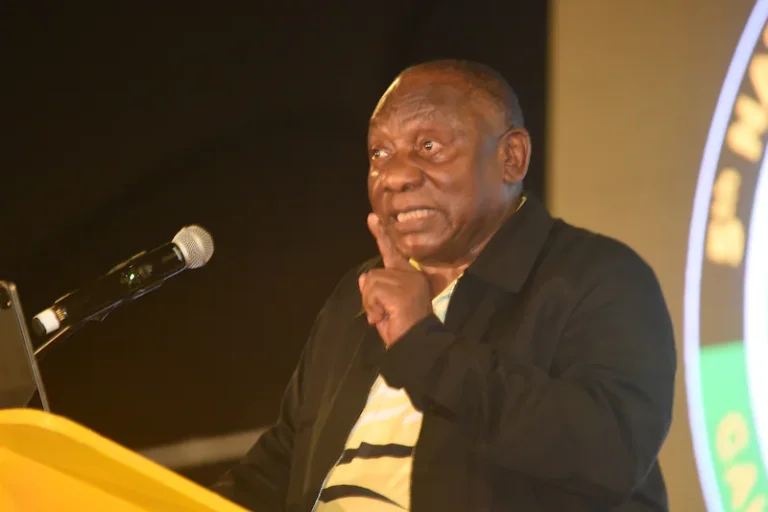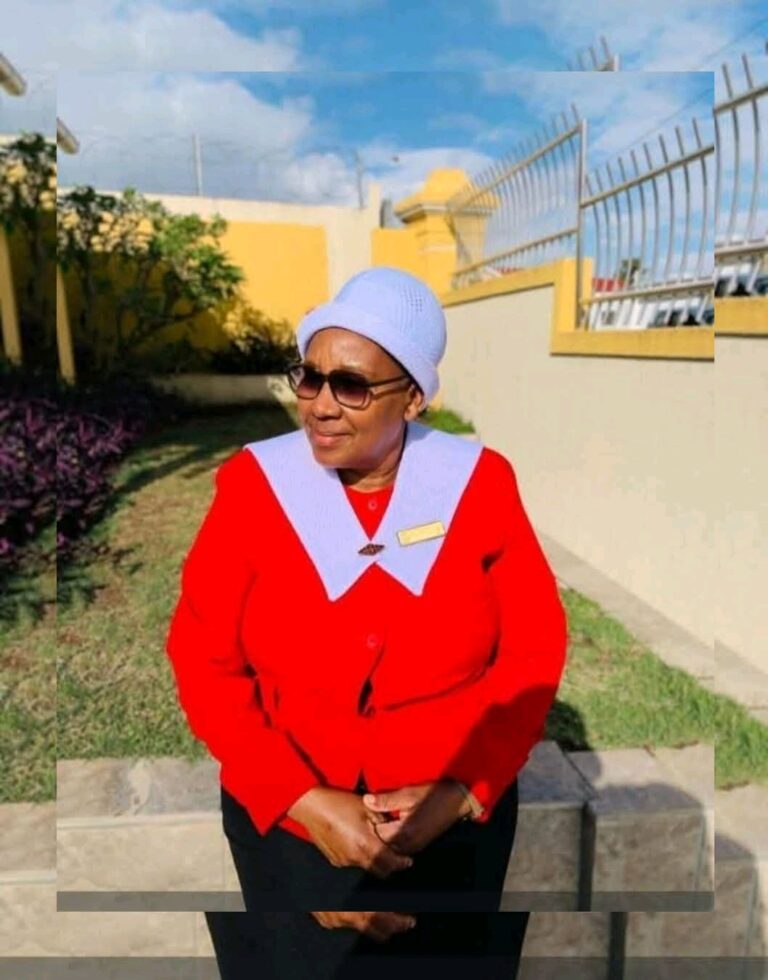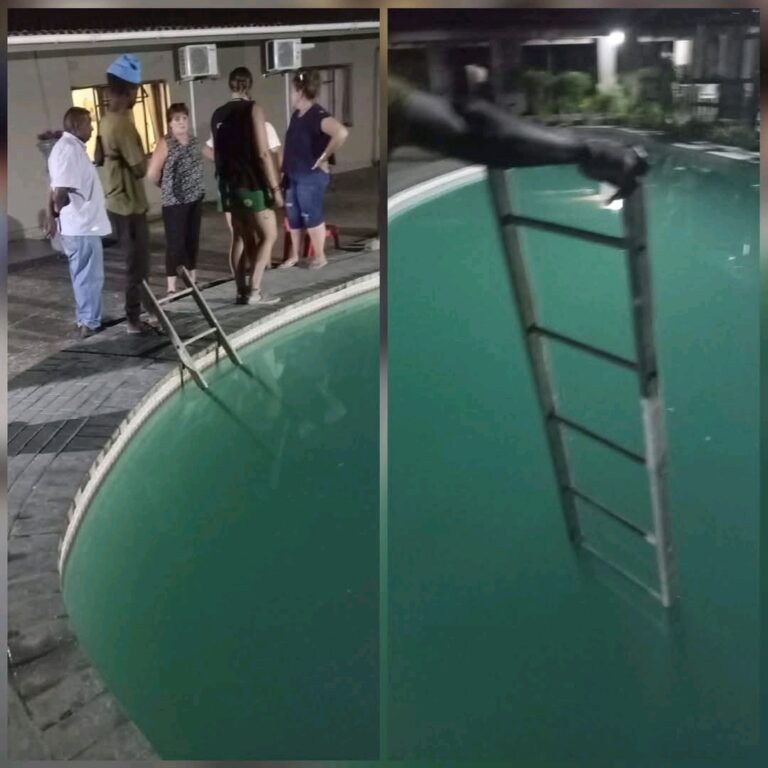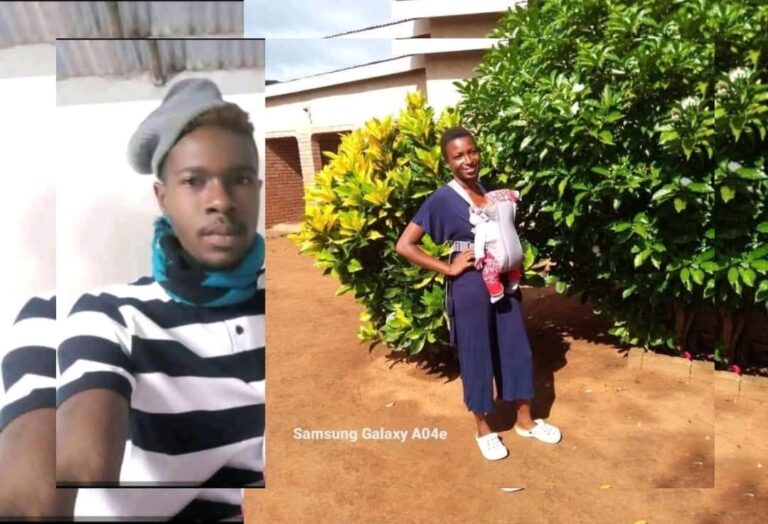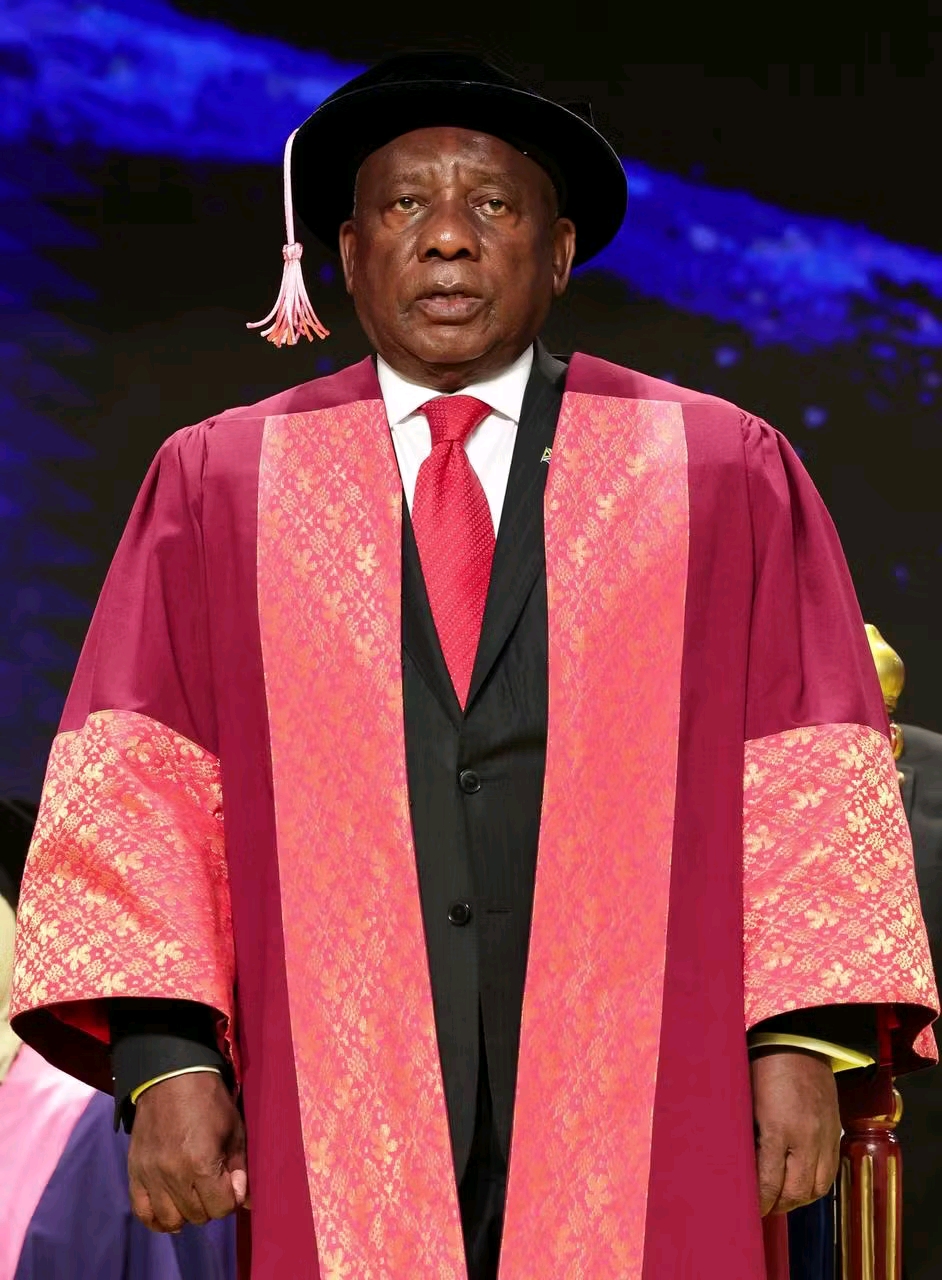
President Cyril Ramaphosa has been awarded an Honorary Doctorate in International Relations by Universiti Malaya, Malaysia’s oldest and most prestigious university. The accolade was conferred during a special convocation ceremony at the Dewan Tunku Canselor Hall on Monday, marking a significant moment in the South African leader’s diplomatic career.
The Chancellor of Universiti Malaya, Sultan Nazrin Muizzuddin Shah of Perak, presented the honorary degree to Ramaphosa in recognition of his outstanding contributions to international diplomacy, negotiation, and global leadership. The institution commended the South African president for his ongoing efforts to promote peace, democracy, and development both on the African continent and globally.
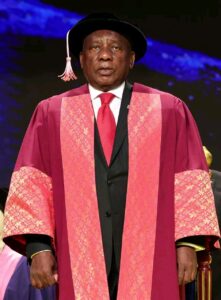
Ramaphosa’s visit to Kuala Lumpur formed part of a broader working tour of Southeast Asia, which also includes participation in the Association of Southeast Asian Nations (ASEAN) Summit. According to the South African Presidency, the trip aims to strengthen bilateral relations between South Africa and the region, focusing on trade, investment, and collaboration in key sectors such as energy, technology, and education.
In his acceptance speech, President Ramaphosa dedicated the award to the people of South Africa, describing it as “an honour that belongs to our nation and its enduring struggle for democracy and freedom.” He emphasised that the recognition reflected not only his personal journey but also the collective sacrifices and achievements of South Africans in building a democratic society.
“South Africa’s story is one of resilience, hope, and unity,” Ramaphosa said. “This honour celebrates our shared efforts to uphold democracy, equality, and international cooperation.”
Following the conferral ceremony, Ramaphosa delivered a public lecture on South–South diplomacy, where he underscored the importance of solidarity among developing nations. He called for renewed commitment to multilateralism, dialogue, and fair trade practices amid growing global challenges such as inequality, climate change, and geopolitical tensions.
The president urged countries in the Global South to strengthen alliances and share resources, expertise, and technology to achieve inclusive development. “Our future depends on our ability to collaborate rather than compete,” he said, adding that partnerships between Africa and Southeast Asia could unlock significant economic potential.
Observers have noted that Ramaphosa’s visit could pave the way for expanded economic cooperation between South Africa and Malaysia, as well as with the broader ASEAN region. South African exporters and investors are expected to benefit from the trip, particularly in sectors such as manufacturing, agriculture, and renewable energy.
Universiti Malaya’s recognition adds to a growing list of international honours bestowed upon Ramaphosa, who has previously received awards for his leadership in mediation, negotiation, and public service. The ceremony in Kuala Lumpur highlighted his global influence as a statesman committed to fostering peace, democracy, and sustainable development.
The event also served to reinforce South Africa’s commitment to building a “Better Africa and a Better World,” a guiding principle of the country’s foreign policy that continues to shape its engagement with the global community.


